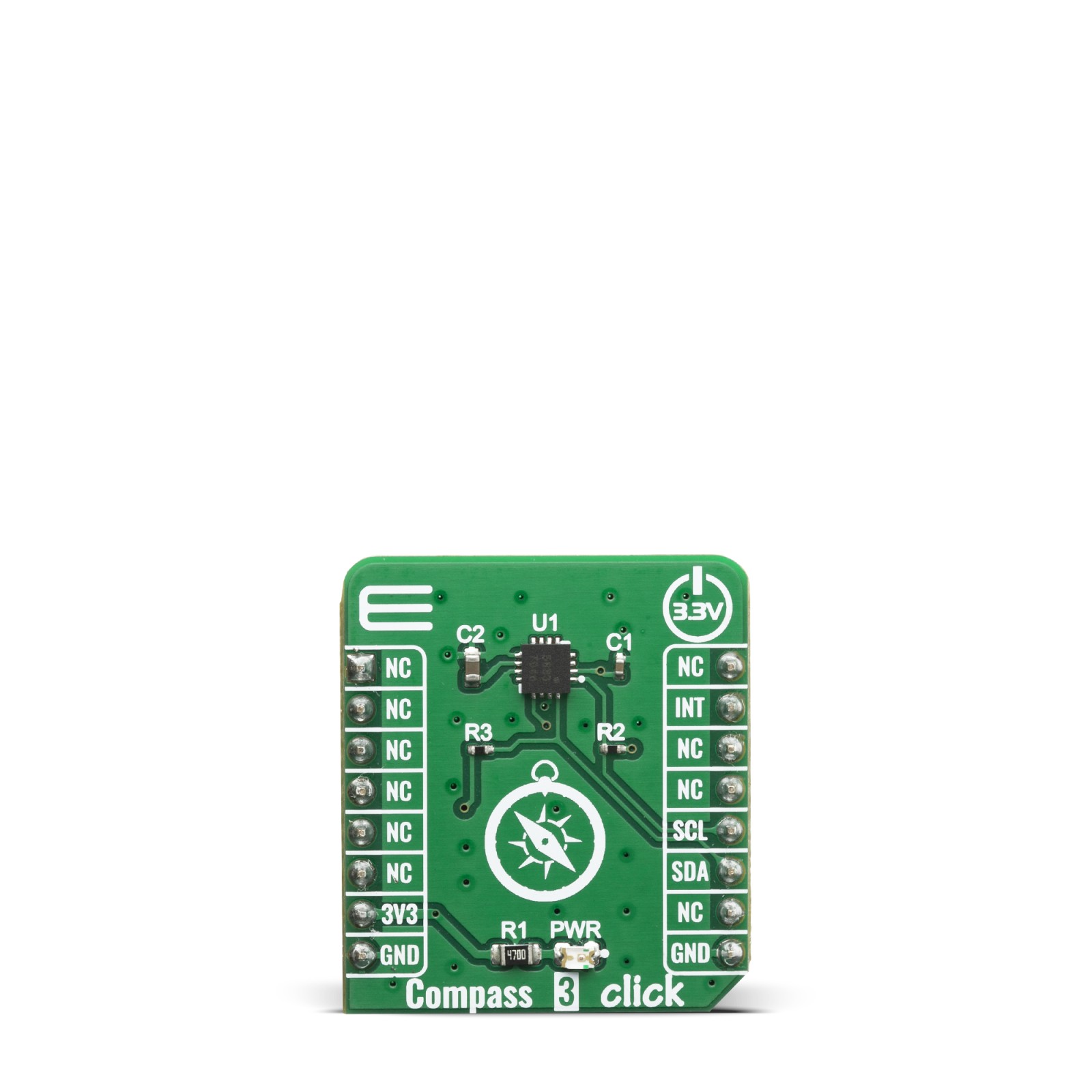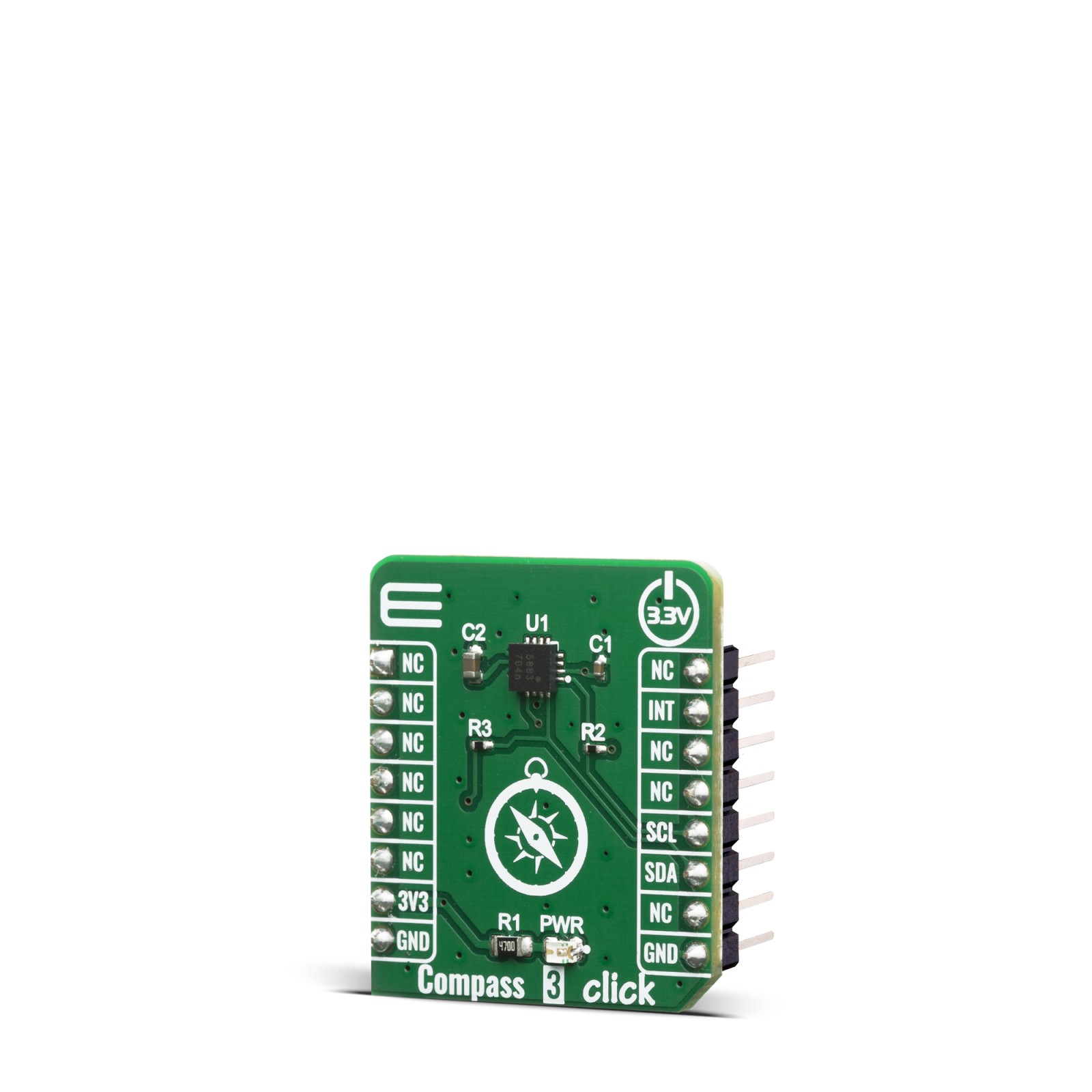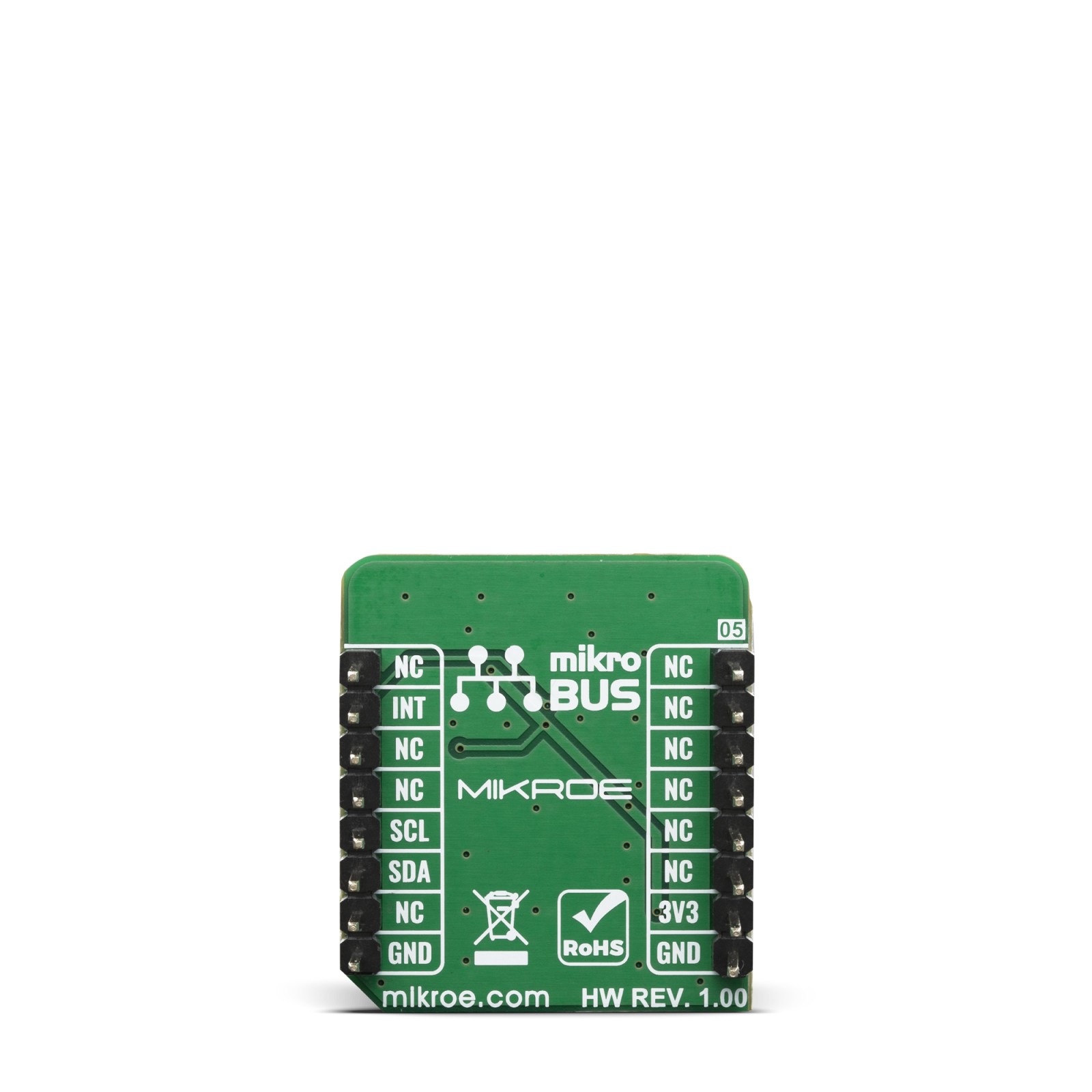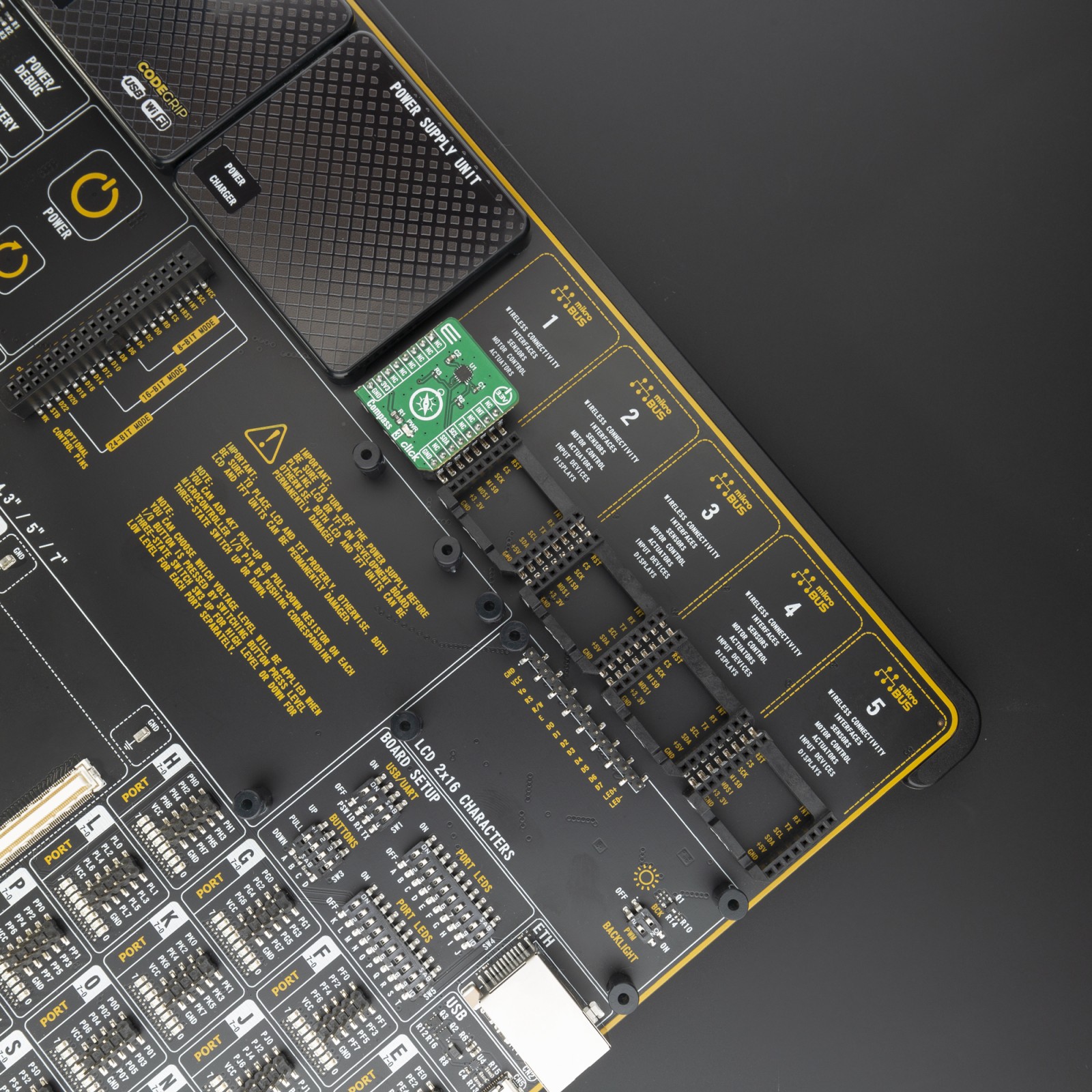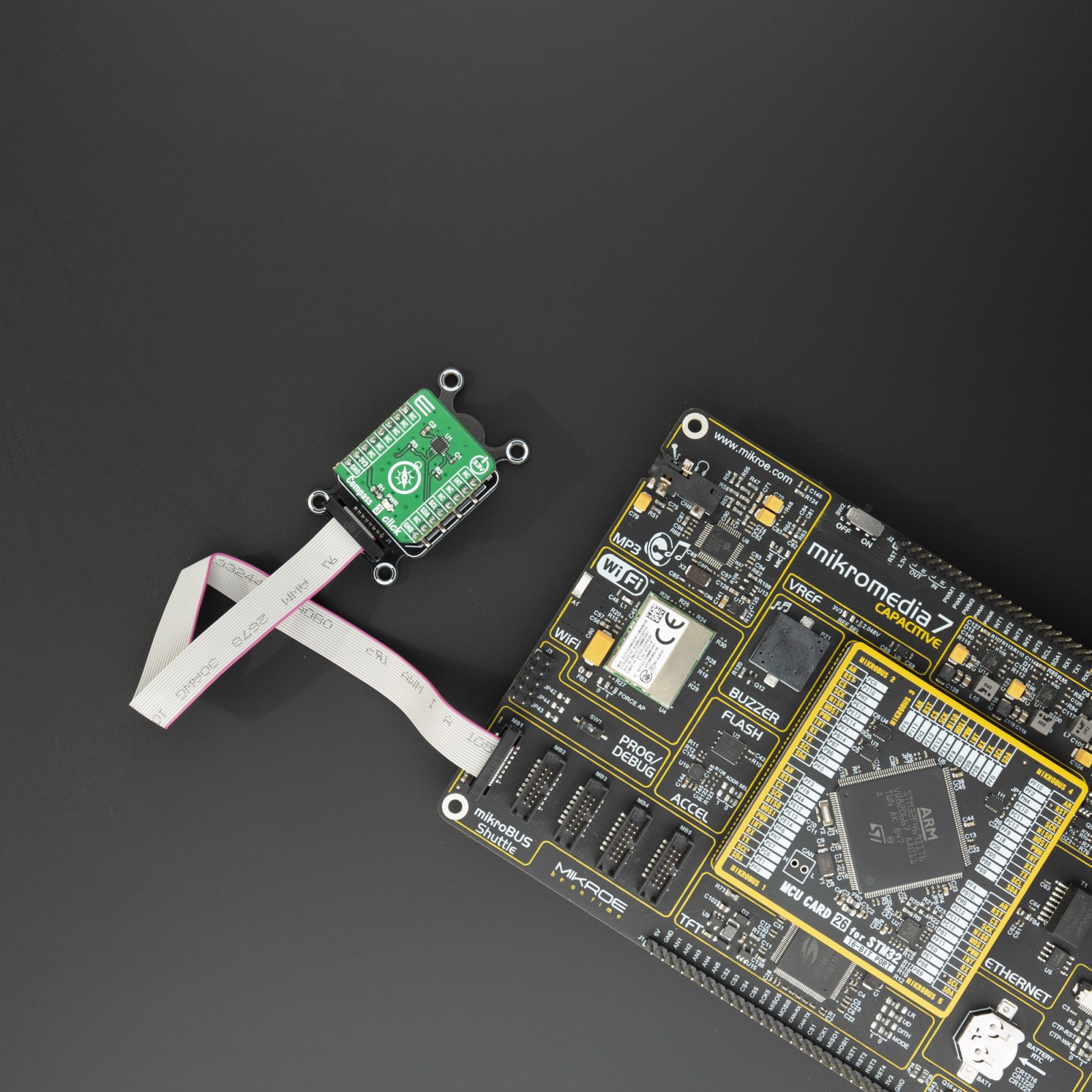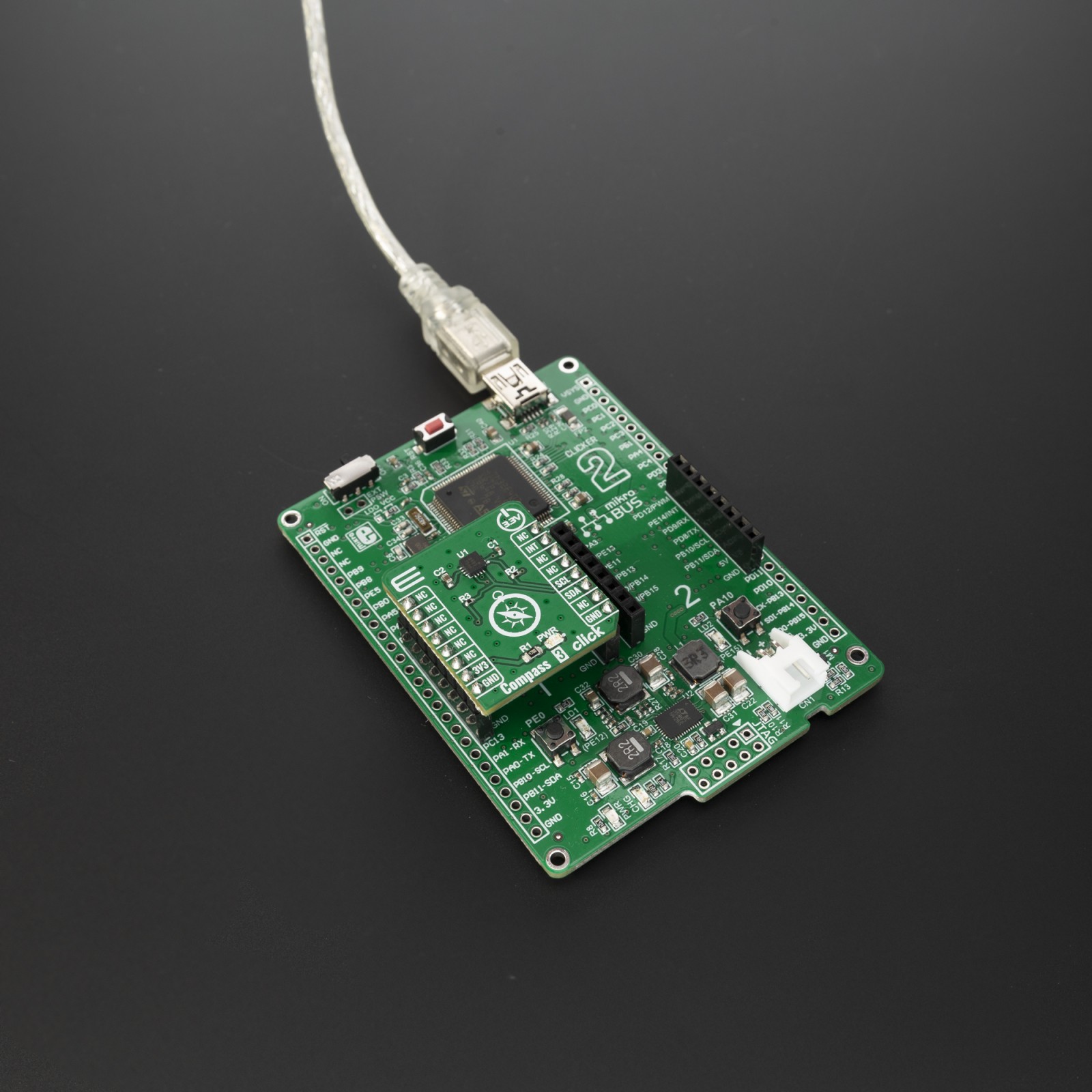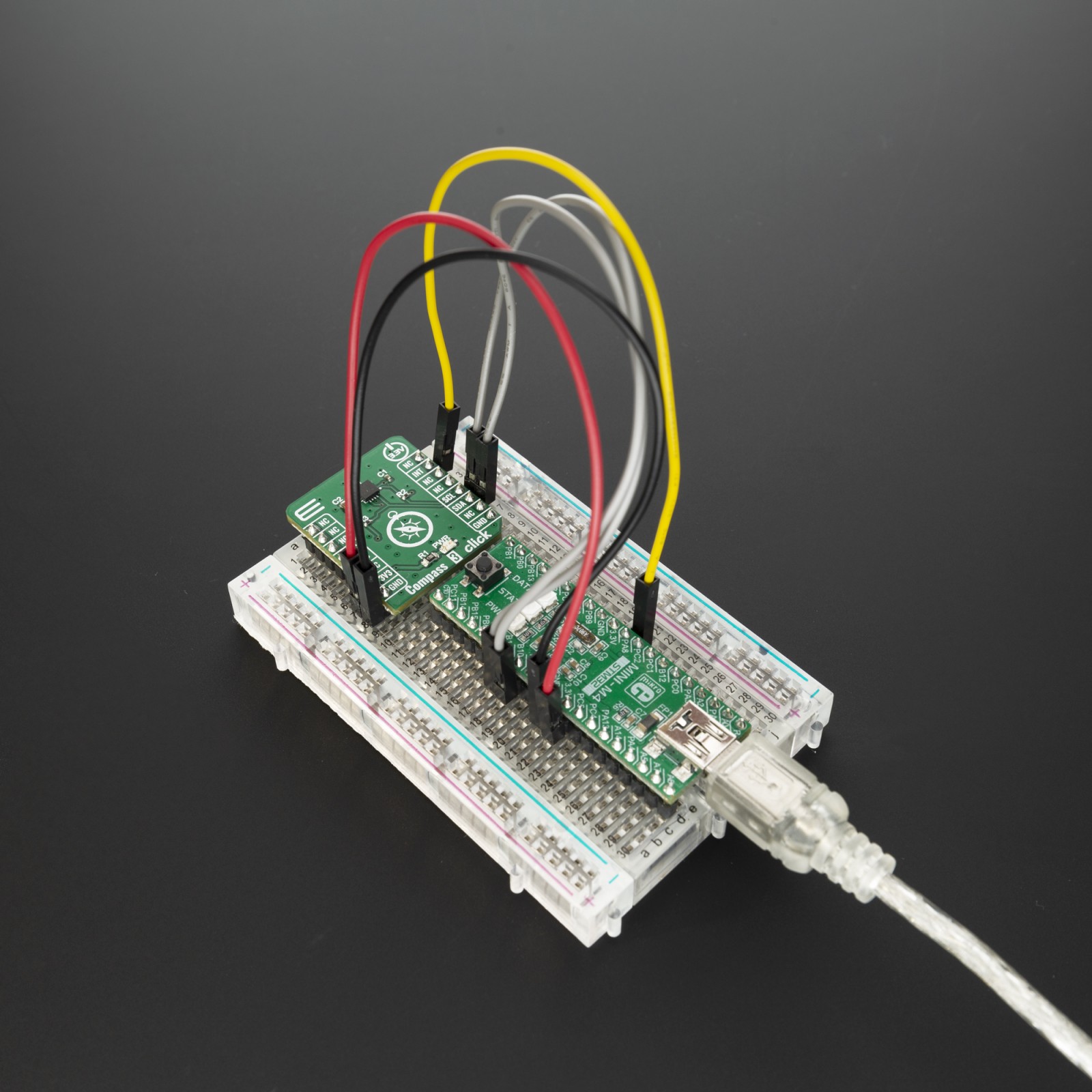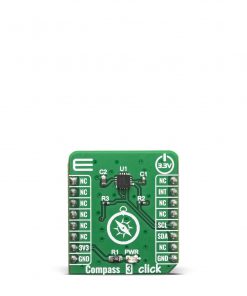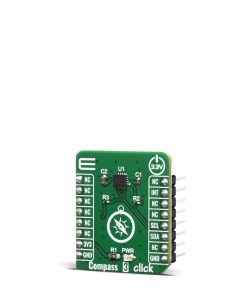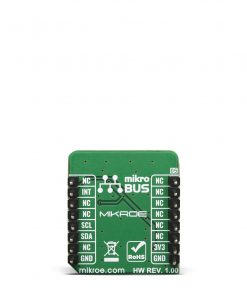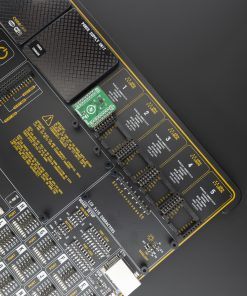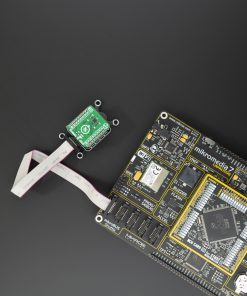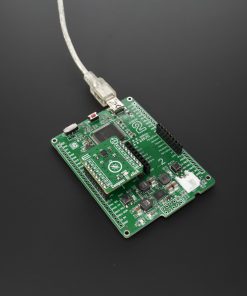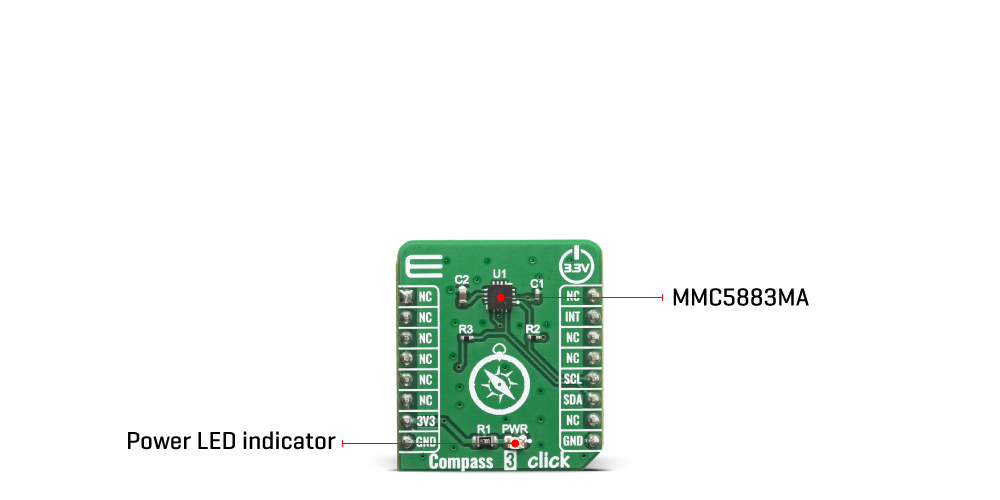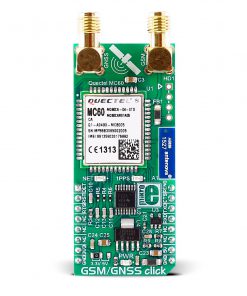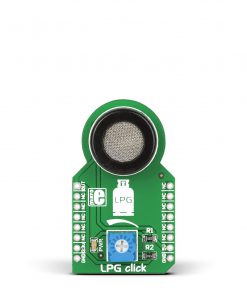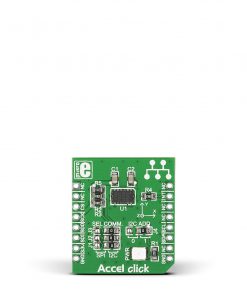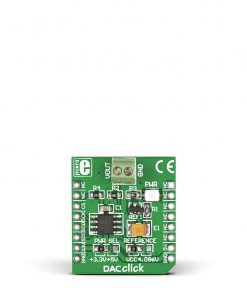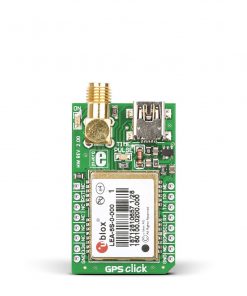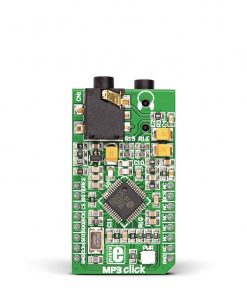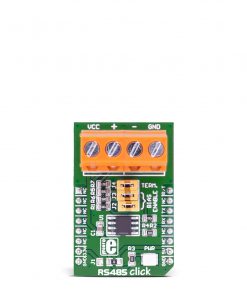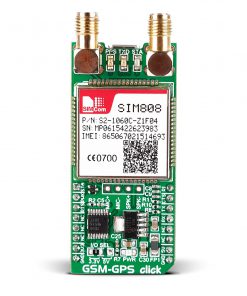Compass 3 Click
R285.00 ex. VAT
Compass 3 Click is an expansion board that can measure the three-axis magnetic field which is perfect for implementation in applications such as electric compasses. This board features MMC5883MA, a complete 3-axis magnetic sensor with signal processing from MEMSIC. For obtaining the sensor measurement data of the magnetic field and temperature, an I2C protocol is used. Main feature of the sensor is the capability to measure magnetic fields within the full scale range of 8Gauss (G), with 0.25mG per LSB resolution at 16bits operation mode and 0.4mG total RMS noise level, enabling heading accuracy of 1º in electronic compass applications. Compass 3 Click is suitable for applications such as electrical compass, position sensing, general magnetic field measurement and more.
Compass 3 Click is supported by a mikroSDK compliant library, which includes functions that simplify software development. This Click board™ comes as a fully tested product, ready to be used on a system equipped with the mikroBUS™ socket.
Stock: Lead-time applicable.
| 5+ | R270.75 |
| 10+ | R256.50 |
| 15+ | R242.25 |
| 20+ | R233.13 |

